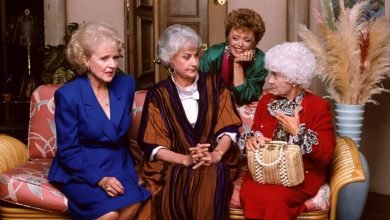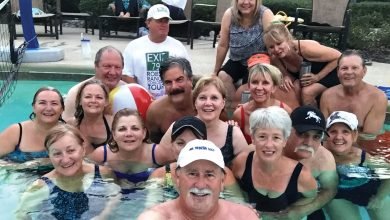New fitness centers cater to aging baby boomers

Baby boomers, the generation that vowed to stay forever young, are getting older, designing senior-friendly gyms and becoming their own personal trainers.
In exercise havens for the over-50 set, the cardio machines are typically low impact, the resistance training is mainly air-powered and some group fitness classes are taken sitting down.
At Welcyon gyms, founded by husband-and-wife boomers Suzy and Tom Boerboom, the average age of members is 62.
“The environment is really designed for those 50 and over,” said Suzy Boerboom.
The couple created Welcyon, which has locations in Minnesota and South Dakota, in 2009. It has no tread-mills and no free weights and workouts are customized to members’ levels of fitness. A smart card sets resistance, counts repetitions and adjusts workouts.
An important attraction for many boomers: background music is a combination of ’40s, ’50s and ’60s tunes played at a much lower volume than in traditional gyms.
“It was something I could manage,” said 66-year-old Bill Zortman, one of an estimated 78 million baby boomers, defined as the group born between 1946 and 1964, who make up about 26 percent of the U.S. population, according to U.S. Census reports.
His thrice-weekly workouts at a Welcyon in Sioux Falls, South Dakota, consists of riding a bicycle or using air-powered resistance machines to strengthen his legs, arms and back.
“They make sure I’m not overdoing it,” Zortman said of the staff, who Boerboom said are often boomers themselves.
The absence of clanging free weights also cuts down on the racket, Boerboom said, noting that many people over 50 prefer a quieter gym.
Group fitness classes for boomers are also modified.
“We’re just beginning to develop a group fitness interval training program,” Boerboom said. “It will be four to six people and low impact.”
The American Council on Exercise says many of their fitness professionals are baby boomers who specialize in working with older adults.
“People in their early 60’s are becoming personal trainers and group fitness instructors,” said Todd Galati, ACE’s director of credentialing.
But they are far from the majority, as the average age of ACE’s 50,000 certified fitness professionals is 42, and more than 37 percent are 40.
“Every year I talk to newly certified personal trainers, retired from their career in another field, who want to help people their age become more fit,” Galati said.
A recent study published in JAMA Internal Medicine showed that a sample of baby boomers had higher rates of hypertension, diabetes, obesity and high cholesterol than their parents’ generation.
“There is a big bad myth about the boomer generation being more fit,” said Dr. Sheldon S. Zinberg, founder of Nifty after Fifty fitness centers for older adults. “In fact, the boomer generation is less fit than their parents were at same age.”
The chain has locations in Arizona, California, Nevada, Texas, Virginia and New York. Its programs target muscle power, muscle strength, reaction time, balance and cognitive skills, he said.
“At age 40 people lose 0.8 to 1 percent muscle mass each year. By age 60 this accelerates to 1.5 percent,” Zinberg said.
At Nifty after Fifty, group fitness classes range from yoga and Zumba to seated volleyball and cane fu, a self-defense class in which participants use a cane.
As with Welcyon, there are no tread-mills. “We used to use tread-mills, but we had people falling off,” Zinberg said. “We use recumbent stair steppers, among other exercisers.”
He advises people to get fit in their 40s and 50s, “and when you do become older, enjoy a supervised, customized program.”
Boerboom said Welcyon plans to open more gyms later this year. “There are over 70 million of us boomers,” she said, “and we have to take care of ourselves.”





